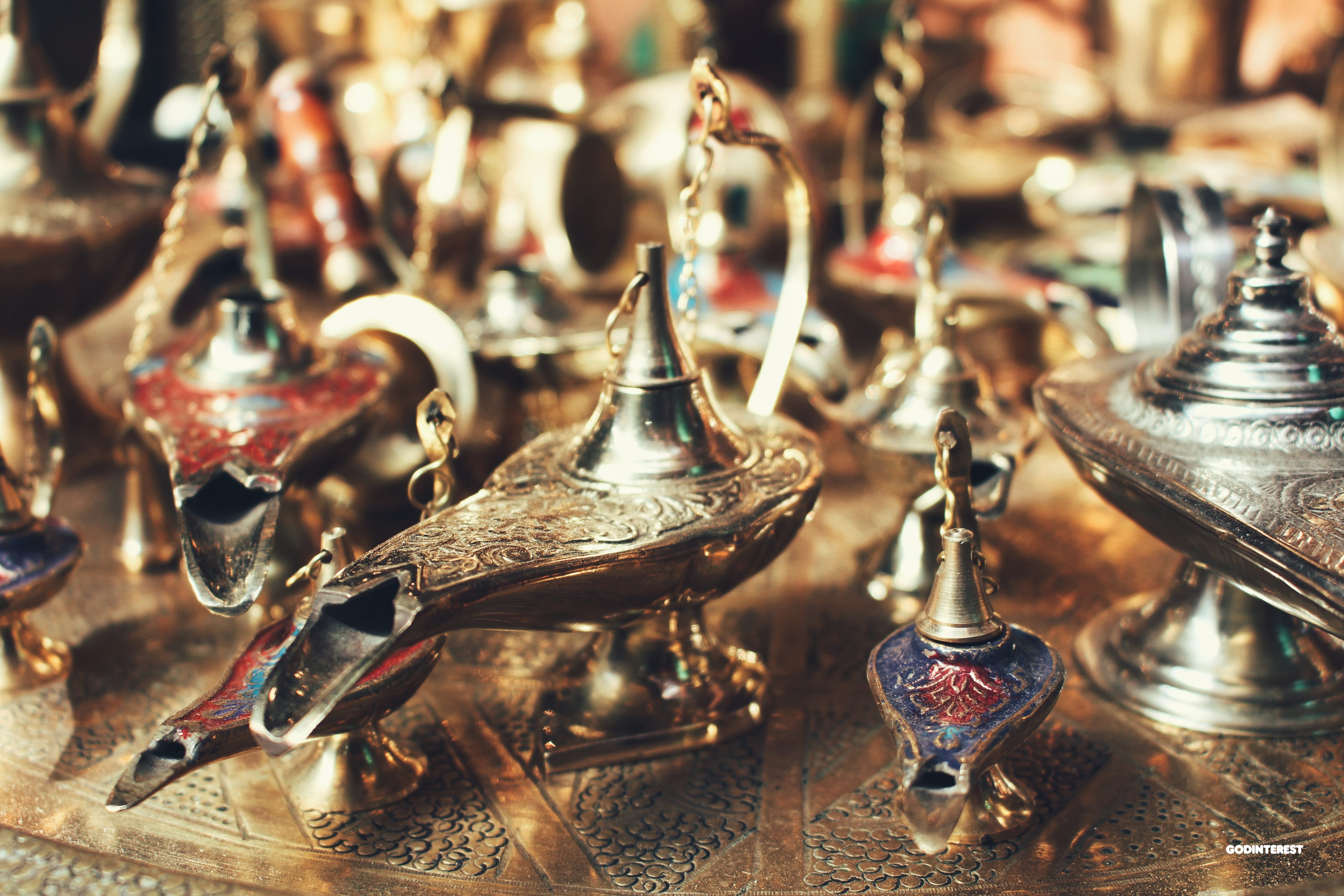In Western literature, the best-known story from The Arabian Nights (the ancient Arabian book) is arguably “Aladdin and the Wonderful Lamp.”
Many of us recognize Aladdin and his lamp due to the well-received retelling of this story by Disney in 1992. Young Aladdin finds a lamp and upon rubbing it he summons the magical wish-granting genie (wonderfully played by the late Robin Williams). This story may be so popular because its theme conveys our intrinsic desire to magically be granted whatever we want. We’ve all thought about it at one time or another–especially in times of need.
It’s not hard then to understand why many believers think of God as Aladdin’s genie and imagine prayer being similar to rubbing a magic lamp in hopes of their wishes turning into reality. They often get on their knees and plead for money, health, riches, their favorite sports team’s victory, you name it! Even for more worthwhile reasons, such as preventing some of the tragedies as we’ve seen in 2019, we find ourselves opting to pray in hopes that God solves our problems, and even become resentful when we don’t see a silver lining. However, our success or failure is not determined by fate, or prayer alone; God is not deciding to intervene depending on the quality of your prayers at a particular time. We are the ones responsible for our own destiny. As Albert Einstein said, “God does not play dice with the Universe”.
If we want to succeed in an endeavor, we must work hard. “All that your hand finds to do,” says the Bible, “do with your very power.” (Ecclesiastes 9:10) It also says: “The plans of the diligent one surely makes for advantage.”–Proverbs 21:5. In the scriptures, James also warns about inaction when he says, “Suppose you see a brother or sister who has no food or clothing, and you say, “Good-bye and have a good day; stay warm and eat well”–but then you don’t give that person any food or clothing. What good does that do?” (James 2:15-16)
Would there have been a Declaration of Independence and a Revolutionary War if the colonists had felt that it was okay to continue submitting to the will of a distant king because their prayers would move God to intervene on their behalf?
Did prayer alone end slavery? Or did the lives of hundreds of thousands of soldiers and slaves and the tireless work of abolitionists have to do something with it?
The role of prayer is not to have God on our speed dial to act on our behalf, but instead to commune with God to help strengthen our resolve to act for ourselves. As believers, we understand that one of the most important gifts bestowed upon mankind is Free Will, and this is something that the bible is very clear about. Free will is the power to take our fate in our own hands and work as individuals and as a society to shape our lives. It is our responsibility not to squander this gift, and instead make the best use of it.
If we go back to the beginning with our example with Aladdin, the overall theme of the story is that infinite strength and wealth comes from within, and it is best to be yourself because poor or rich you are a “diamond in the rough”. In the original tale Aladdin, the protagonist, loses his magical genie and discovers that true identity is a buildup of character, not wealth or wishful thinking. Likewise, God has bestowed us with the tools of discovery and the free will to pursue our own goals. Prayer, like the genie in Disney’s version of the Aladdin story, only reflects the very strength within ourselves.



